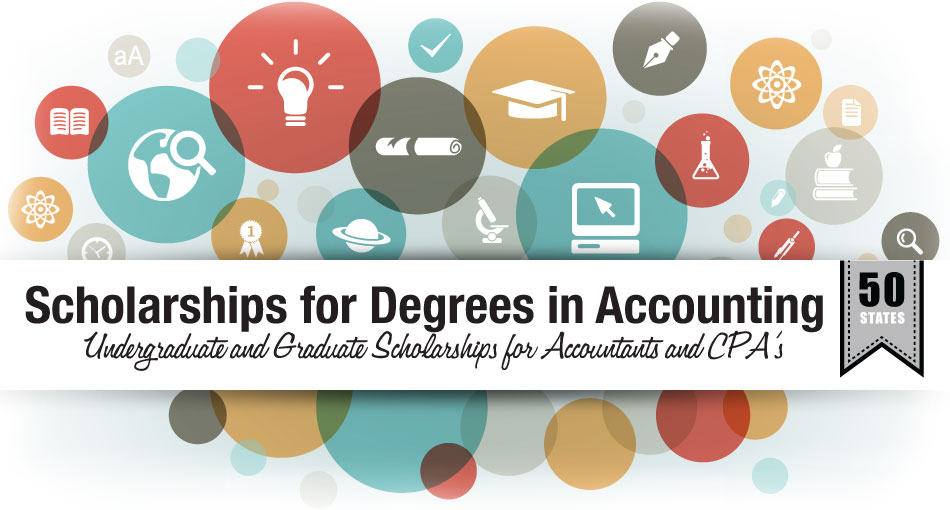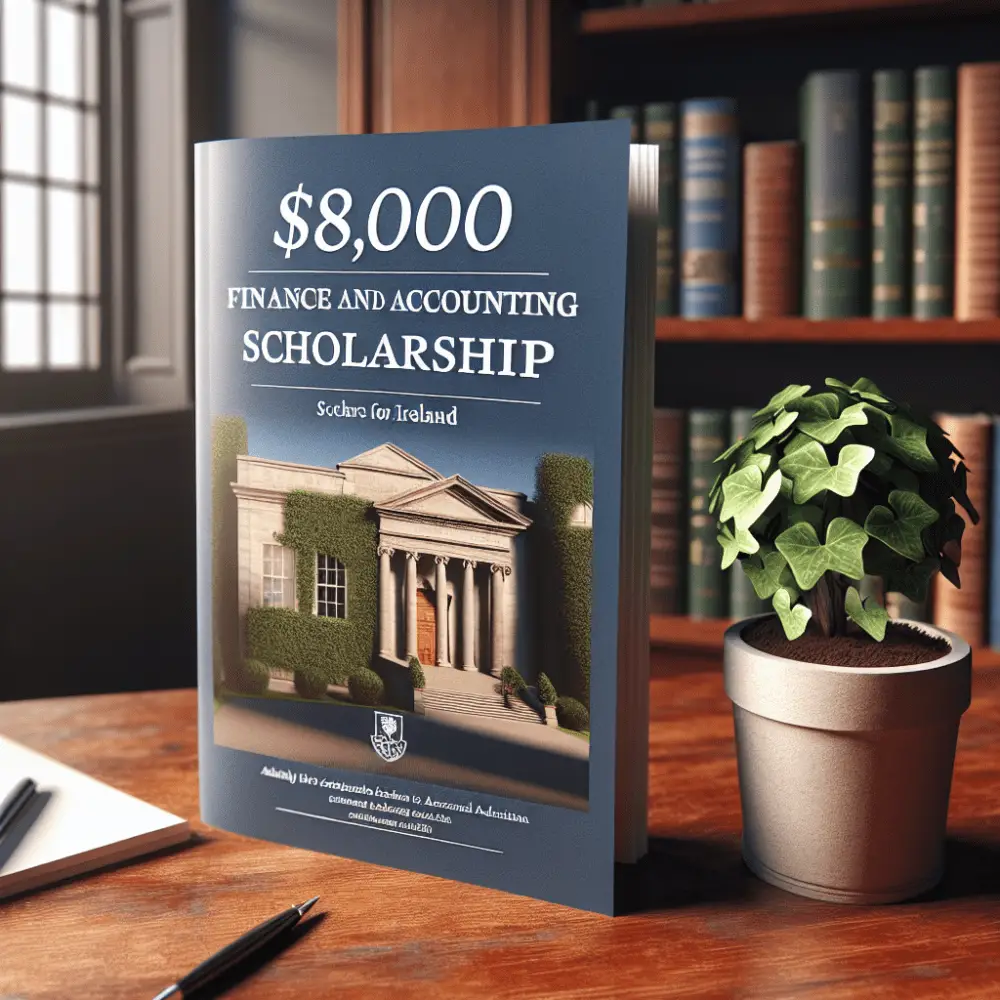I still remember the knot in my stomach. It was late at night, the only light coming from my laptop screen, as I stared at the university’s tuition fees. My dream was clear: I wanted to be an accountant, to understand the language of business, to help companies thrive. But the numbers on that screen? They felt like a brick wall. How was I, a student from a modest background, ever going to afford this?
That feeling of dread, that worry about student debt, it’s a heavy burden many aspiring students carry. Especially in fields like accounting, where the path often involves years of study, perhaps even a master’s degree and the CPA exam. But here’s the secret I discovered, the light at the end of my tunnel: accounting scholarships.
This isn’t just a guide; it’s my story. It’s the story of how I went from feeling overwhelmed to finding a way to fund my education, largely debt-free. And if I can do it, so can you. I’m going to share everything I learned, the mistakes I made, and the strategies that worked, all in plain language, just like I’m talking to a friend over coffee.
The Dream and the Dread: Why Scholarships Became My Lifeline
From a young age, I was fascinated by numbers and how businesses worked. I loved puzzles, and accounting felt like the ultimate puzzle, where every piece of financial data had a story to tell. I pictured myself in a professional setting, crunching numbers, offering insights, being a valuable part of an organization. It was more than just math; it was about understanding the backbone of the economy.
But then reality hit. College is expensive. Very expensive. My parents had always encouraged my dreams, but the financial strain was a constant, unspoken worry. Taking out massive student loans seemed like the only option, but the thought of starting my career already deep in debt was terrifying. It felt like I’d be paying for my education for decades.
That’s when I heard whispers about scholarships. Not just for sports stars or valedictorians, but for anyone with a dream and a good story. Specifically, I started looking into accounting scholarships. It felt like a long shot, but what did I have to lose? This search became my second full-time job.
Unearthing Hidden Treasures: Where to Start Your Scholarship Hunt
The first step, and often the most overwhelming, is knowing where to look. It’s like searching for gold – you need a map. Here’s where I started digging, and where you should too:
1. Your University’s Financial Aid Office (My First Stop!)
This is probably the most obvious, but also the most important. Many universities have their own dedicated scholarships for students pursuing specific majors. Why are these great? Often, they have fewer applicants than national scholarships, increasing your chances.
- What I Did: I visited my university’s financial aid website and then made an appointment with a financial aid advisor. They had a list of specific scholarships for accounting majors, some even departmental, that I would never have found otherwise. Don’t be shy; these people are there to help you!
2. Professional Accounting Organizations (A Goldmine!)
This is where the real accounting-specific opportunities shine. Professional organizations want to foster the next generation of accountants, so they offer generous scholarships.
- The Big Names:
- AICPA (American Institute of Certified Public Accountants): They have various programs, including the AICPA Scholarship for Future CPAs and the AICPA John L. Carey Scholarship. These are HUGE.
- IMA (Institute of Management Accountants): Great for those interested in corporate accounting.
- AFWA (Accounting & Financial Women’s Alliance): Fantastic support for women in the field.
- NABA (National Association of Black Accountants): Offers scholarships to support diversity in accounting.
- ALPFA (Association of Latino Professionals for America): Another excellent resource for diverse candidates.
- What I Did: I spent hours on their websites, meticulously reading eligibility requirements. I realized many of these organizations had local chapters, which sometimes offered their own scholarships with even less competition. Joining as a student member (often free or very low cost) can sometimes make you eligible for these.
3. Corporate Sponsorships and Accounting Firms (Think Future!)
Many accounting firms and corporations invest in future talent by offering scholarships. They see it as a way to recruit promising students.
- What I Did: I looked up local and national accounting firms (especially the "Big Four" like Deloitte, PwC, EY, KPMG, but also mid-sized and regional firms). Many had career sections on their websites that listed scholarship opportunities or internship programs that included financial awards. Sometimes these were tied to internships, which was a double win: money and experience!
4. Niche and Community-Based Awards (Don’t Overlook These!)
Don’t limit yourself to just "accounting" scholarships. Think about who you are and where you live.
- My Experience: I looked at local community foundations, my high school’s alumni association, even my parents’ workplaces (some companies offer scholarships to employees’ children). There are scholarships for specific ethnicities, for first-generation college students, for volunteers, for people with specific hobbies, for students from certain towns. The more specific, the less competition.
Crafting Your Story: Making Your Application Shine (My Key Takeaways)
Finding the scholarships is only half the battle. The other half is convincing the scholarship committees that you are the right person for their money. This is where your personal story comes in.
1. Academic Excellence Isn’t Everything (But It Helps!)
Yes, good grades are important. They show you’re serious about your studies. But most scholarships aren’t just looking for the student with the highest GPA. They’re looking for well-rounded individuals with passion, drive, and potential.
- What I Learned: My GPA was good, but not perfect. Instead of focusing on that, I highlighted my growth, the challenging courses I took, and how my accounting studies truly excited me.
2. The Power of the Personal Essay (Your Voice Matters)
This is your chance to tell your story, not just list your achievements. Scholarship committees read hundreds of applications. Make yours stand out.
- My Approach:
- Answer the Prompt Directly: Don’t go off-topic. Read the question carefully.
- Be Authentic: Don’t try to be someone you’re not. Share your genuine passion for accounting.
- Show, Don’t Just Tell: Instead of saying "I’m a leader," tell a story about a time you led a team project or took initiative. For example, I wrote about how I organized a fundraising event in high school and how managing the budget sparked my interest in financial reporting.
- Connect to Accounting: How will this scholarship help you achieve your accounting goals? What kind of accountant do you aspire to be?
- Proofread, Proofread, Proofread: A sloppy essay suggests a lack of attention to detail, which is the opposite of what an accountant needs! Ask friends, family, or a teacher to read it over.
3. Recommendation Letters: Choose Wisely
A strong recommendation letter can tip the scales in your favor.
- My Strategy: I asked professors who knew me well, not just those I got good grades from. I chose a professor who saw my dedication in their accounting class and another who knew about my leadership in a student club.
- How to Ask: Ask politely and give them plenty of time (at least two weeks, ideally more). Provide them with your resume, the scholarship requirements, and a brief summary of why you’re applying. This makes it easier for them to write a specific and glowing letter.
4. Extracurriculars and Leadership: Show Your Well-Rounded Self
Scholarship committees want to see that you’re more than just a student. They want to see that you’re engaged, have initiative, and can contribute to a community.
- What I Did: I listed my involvement in the Accounting Club, my volunteer work at a local charity, and even my part-time job. These experiences demonstrated my time management skills, my ability to work in teams, and my commitment.
5. The Interview (If Applicable): Be Yourself, Be Prepared
Some scholarships require an interview. This is your chance to let your personality shine.
- My Tips: Research the organization and the interviewers. Practice answering common questions (e.g., "Why accounting?", "What are your career goals?"). Dress professionally. And most importantly, be enthusiastic and genuine. Show them why you’re worth investing in.
6. Persistence is Your Secret Weapon
I got rejected from a lot of scholarships. It’s disheartening, but it’s part of the process. For every "no," there was eventually a "yes."
- What I Learned: Don’t take rejections personally. There are many factors at play. Just keep applying. Treat each rejection as a stepping stone to finding the right fit.
Types of Accounting Scholarships I Encountered (and You Will Too!)
As I applied, I noticed that scholarships often fell into different categories. Understanding these can help you narrow your search.
1. Merit-Based Scholarships
These are awarded based on academic achievement, test scores (SAT/ACT), and sometimes specific talents. If you have a strong GPA and good scores, definitely aim for these.
2. Need-Based Scholarships
These consider your financial situation. You’ll usually need to fill out the FAFSA (Free Application for Federal Student Aid) to determine your eligibility. Don’t assume you won’t qualify; every bit helps!
3. Diversity & Inclusion Scholarships
Many organizations are committed to increasing diversity in the accounting profession. Scholarships are available for students from underrepresented backgrounds, including specific ethnic groups, first-generation college students, or those with disabilities.
4. Specific Interest Scholarships
Believe it or not, there are scholarships for almost every niche. Are you interested in forensic accounting? Tax? Auditing? Look for scholarships specific to those areas. Sometimes even hobbies like playing an instrument or volunteering for a specific cause can open doors.
5. Graduate & CPA Exam Scholarships
If your accounting journey goes beyond an undergraduate degree, there are scholarships specifically for master’s programs or to help cover the costs of the rigorous CPA exam. Plan ahead for these!
My Top Tips for a Successful Scholarship Journey (Beyond the Basics)
Looking back, here are some things I wish someone had told me from the start:
- Start Early, Seriously Early: Don’t wait until your senior year of high school or college. Start researching and preparing your applications a year in advance if you can. Some scholarships have deadlines in the fall for the next academic year.
- Create a System: Keep a spreadsheet. List the scholarship name, deadline, eligibility criteria, required documents, and application status. This keeps you organized and prevents missing deadlines.
- Recycle, Don’t Rewrite (Smartly!): You’ll find that many scholarship essays ask similar questions. Don’t rewrite every essay from scratch. Adapt your existing essays to fit new prompts, but always customize them.
- Follow Instructions Meticulously: If they ask for three letters of recommendation, don’t send two or four. If they want a 500-word essay, don’t send 700. Attention to detail is key in accounting, and it’s key in scholarship applications too.
- Network, Network, Network: Attend career fairs, join student accounting clubs, connect with professionals on LinkedIn. Sometimes, these connections can lead to scholarship opportunities or valuable advice.
- Don’t Give Up: This is the most important tip. It’s a marathon, not a sprint. There will be frustrating moments, but the reward of a debt-reduced education is worth every ounce of effort.
FAQs About Accounting Scholarships (What I Wish I Knew Earlier)
Here are some common questions I had, or heard others ask, during my scholarship search:
Q: Do I need perfect grades to get an accounting scholarship?
A: No! While good grades help, many scholarships consider other factors like leadership, extracurriculars, volunteer work, and your personal story. Don’t let a less-than-perfect GPA deter you from applying.
Q: Are there scholarships for international students studying accounting?
A: Yes, absolutely! Many universities have specific scholarships for international students, and some professional organizations and private foundations also offer them. Research carefully and check the eligibility for each award.
Q: When is the best time to apply for accounting scholarships?
A: It varies widely. Some deadlines are in the fall for the following academic year, while others are in the spring. Start your research early (ideally a year in advance) and create a calendar of deadlines.
Q: Is it really worth all the effort to apply for so many scholarships?
A: Unequivocally, yes! Even small scholarships add up. Imagine getting five $1,000 scholarships – that’s $5,000 you don’t have to borrow. The time you invest now can save you thousands in future debt and interest payments.
Q: Can I apply for scholarships even if I’m already in college?
A: Definitely! Many scholarships are specifically for current undergraduate or graduate students. Don’t think it’s just for high school seniors.
Take That First Step
My journey to becoming an accountant, free from the crushing weight of student loans, was made possible by scholarships. It wasn’t easy; it took dedication, research, and a lot of writing. But every late night, every rejected application, every moment of doubt was worth it.
If you have a dream of working in accounting, don’t let the cost of education stop you. Take that first step. Start your research. Write that first essay. Ask for that recommendation. Your future, debt-free self will thank you for it. The opportunities are out there, waiting for you to find them. Go get ’em!



